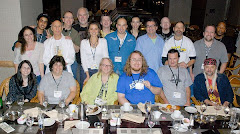 I love getting feedback on my blog. I admit it. I like hearing from people of all ages and all walks of life. My readers and I tend to have the same aspiration: to be more creative, or to be more inspired, and accomplish something we dream of. Many of my readers also resonate with the idea of being a ‘shy singer’ or a ‘shy person’. I’ve had a couple of people write to me and say that they know what it’s like to be shy… but, they add, ‘you can get over that.’
I love getting feedback on my blog. I admit it. I like hearing from people of all ages and all walks of life. My readers and I tend to have the same aspiration: to be more creative, or to be more inspired, and accomplish something we dream of. Many of my readers also resonate with the idea of being a ‘shy singer’ or a ‘shy person’. I’ve had a couple of people write to me and say that they know what it’s like to be shy… but, they add, ‘you can get over that.’Yes. You can. I am an example of how you can. But, I also want to say that many of us are so deeply programmed as ‘shy’ that we feel like social misfits who have no place in the world. I was so introverted that I simply wanted to be invisible. I had no social skills and felt so incredibly stupid when having to make small talk in the coffee room at work or if I met someone I knew on the street. I felt I was inherently flawed and that everything I did was simply not good enough and never would be. I felt that I had nothing to offer the world and was taking up valuable space.
It was only when I began to walk the path towards a dream that I’d had since I was 5 or 6 years old… that things began to change. That change was slow and gradual. It happened over time, as I practiced an art form. That, to me, is the secret of re-writing your own program. The answer to ‘how do I change’, is to take action.
Small actions. Baby steps.Repeatedly. Consistently. I practiced twice a day five days a week for 8 years, and every time I practiced I was growing my awareness of how I thought and how I related to my own voice. This perspective was vital to my self-emancipation. As I began to hear what I said to myself about my singing, I also began to hear how what I said to myself about my Self. And I was shocked. At one point I was journaling daily, and tended to write about 10 pages a day. I filled 3 of those big 300-page notebooks in less than a month. At the end of that month, when I looked through everything I’d written, I was stunned to realize just how negative my thoughts were, all the time. I was either worried or guilty or frustrated or entangled in some sort of procrastination. No wonder I couldn’t free my voice when all my thoughts were so anxious.
That awakening helped me to move forward a little more. Each step along the way, when change occurred, I could look back and see that it had been with me for awhile, tapping me on the shoulder, waiting patiently for me to open to it. By the time I embraced it, it felt like a natural step in the right direction.
There is a little story that I like to tell my students. I read it in a newspaper once, and I think it’s very true to our process.
There is a stone cutter, making a tool. He has his hammer rock, and the stone he is working on. On his one thousandth blow, the stone splits to a perfect edge. And he knows that that one blow didn’t do it. It was all the blows that went before.
























